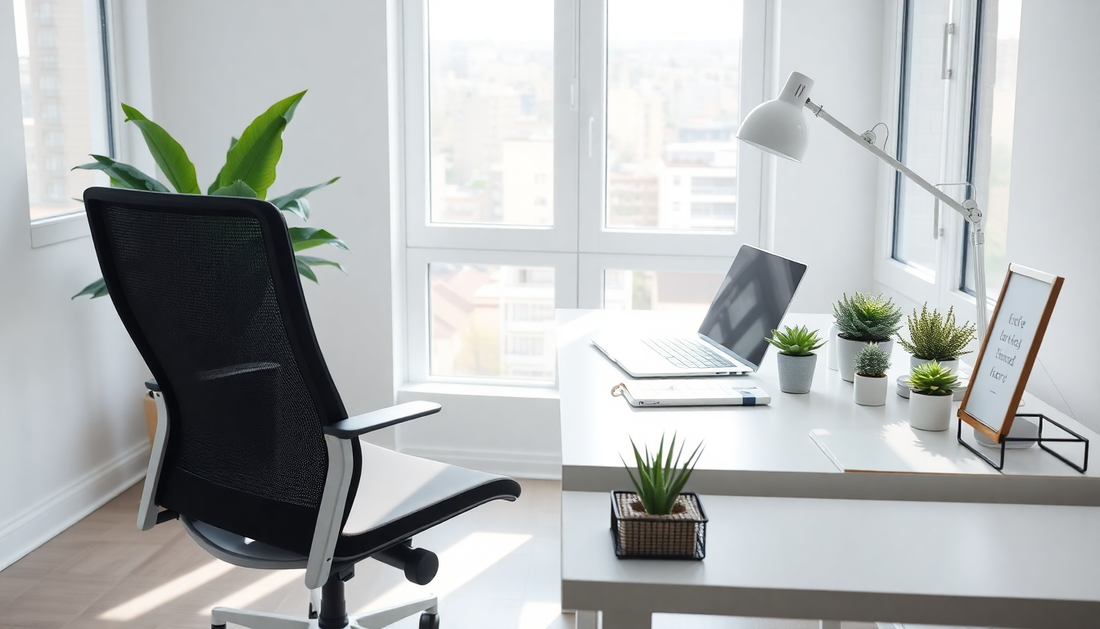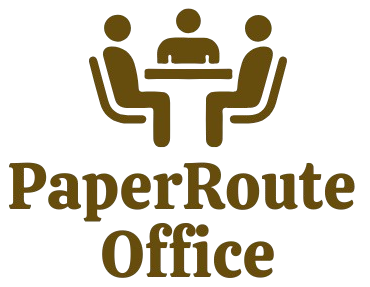
How to Set Up a Functional Home Office: Essentials Every Remote Worker Needs
Share
The rise of remote work has transformed the way we approach our professional lives. As more and more people embrace the flexibility and convenience of working from home, the need for a well-designed, functional home office has become increasingly crucial. In this blog post, we'll explore the essential elements that every remote worker should consider when setting up their ideal workspace.
Ergonomic Workspace Basics
The foundation of a productive home office lies in creating an ergonomic workspace. Choosing the right desk and chair is paramount. Look for a desk that is the appropriate height for your needs, allowing your arms to rest comfortably on the surface with your elbows at a 90-degree angle. Invest in an adjustable, ergonomic office chair that provides lumbar support and encourages good posture. Proper desk and monitor height are also crucial to prevent neck and back strain.
Essential Tech and Equipment
No home office is complete without the right tech and equipment. Start with a reliable computer that can handle your workload, whether it's a powerful desktop or a sleek laptop. Ensure you have a high-speed internet connection to keep you connected and productive. Consider adding external monitors, a comfortable keyboard, and a mouse that fits your hand ergonomically. Noise-canceling headphones can also be a game-changer, allowing you to focus on your work without distractions.
Lighting and Comfort
Proper lighting and temperature control can significantly impact your productivity and well-being. Aim to position your workspace near natural light sources, such as windows, to take advantage of the mood-boosting effects of sunlight. Supplement with task lighting, such as a desk lamp, to illuminate your work area. Pay attention to the room's temperature and ventilation, ensuring you're comfortable throughout the day.
Organization and Productivity Tools
Keeping your home office organized and clutter-free can have a profound impact on your focus and efficiency. Invest in storage solutions, such as shelves, cabinets, or file organizers, to keep your essential documents and supplies within reach. Explore digital organization tools, like cloud storage and note-taking apps, to streamline your workflow. Cable management techniques can also help create a clean, professional-looking workspace.
Comfort and Wellness Additions
Your home office should be a space that not only facilitates productivity but also supports your overall well-being. Consider adding ergonomic accessories, such as a standing desk, a footrest, or a lumbar support cushion, to promote better posture and reduce strain. Incorporate plants, artwork, or other decorative elements to create a visually appealing and calming environment. Remember to take regular breaks and incorporate movement into your workday to maintain your energy and focus.
Budget-Friendly Setup Tips
Setting up a functional home office doesn't have to break the bank. Look for cost-effective equipment options, such as refurbished or second-hand items, and explore DIY solutions for workspace improvements. When it comes to investing in your home office, focus on the essentials that will have the biggest impact on your productivity and comfort, such as a high-quality chair or a reliable computer.
Conclusion
Creating a well-designed, functional home office is an investment in your productivity, comfort, and overall well-being. By incorporating the essential elements we've discussed, you can transform your remote work experience and unlock new levels of efficiency and focus. Remember, the key is to personalize your workspace to suit your unique needs and preferences, ensuring that your home office becomes a sanctuary of productivity and inspiration.
